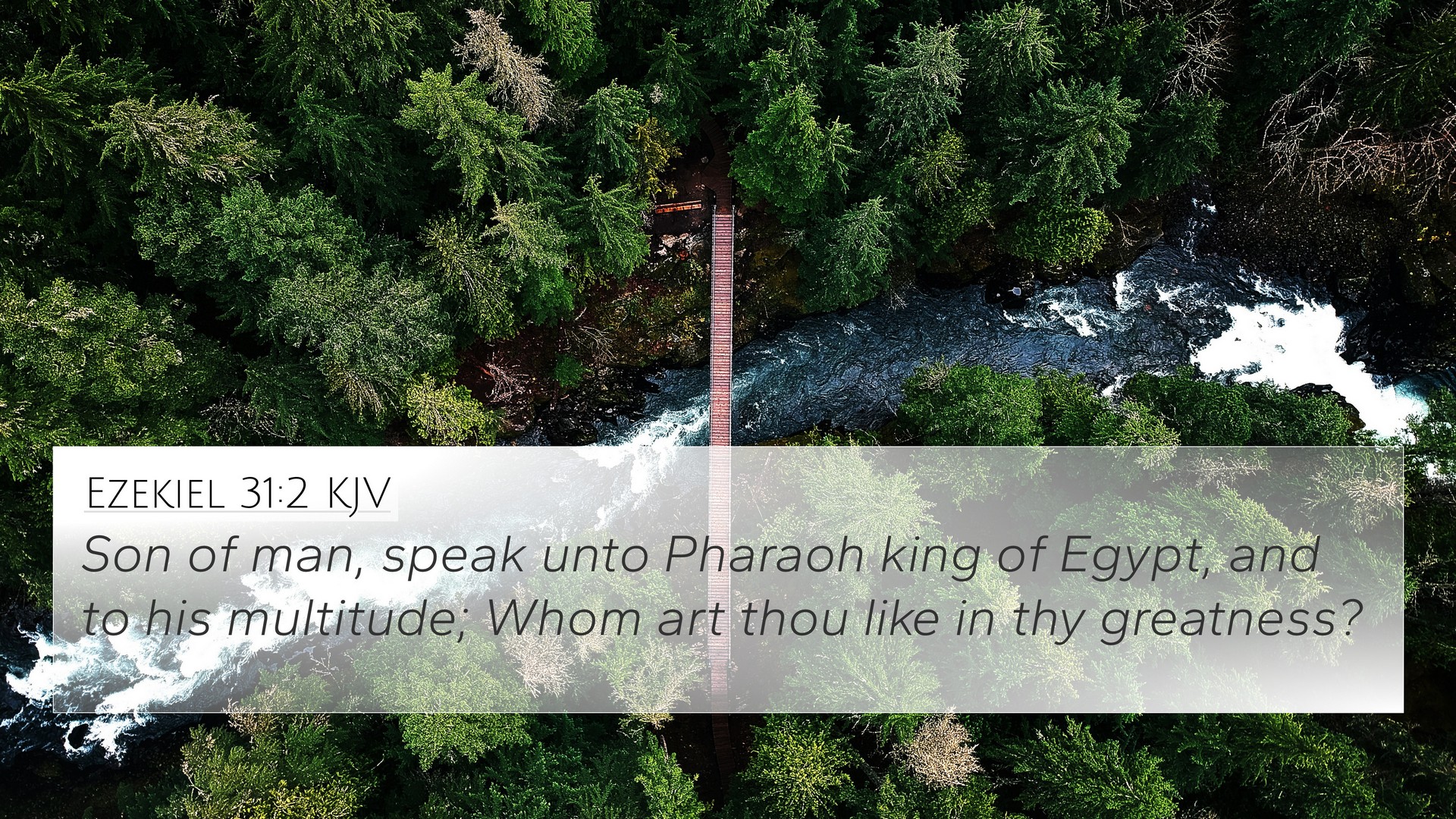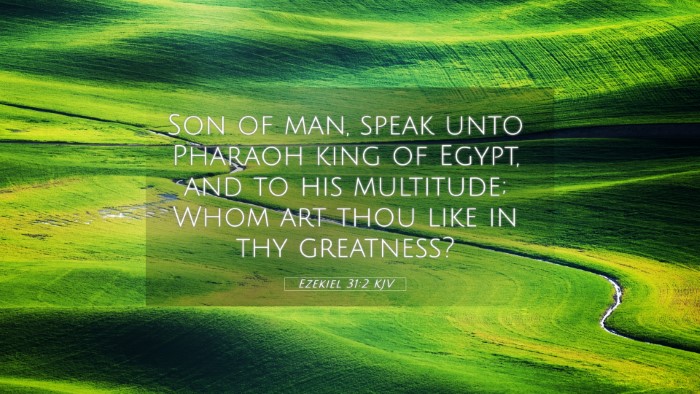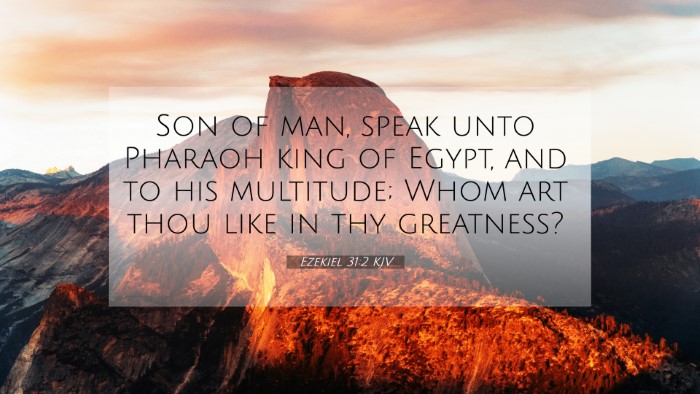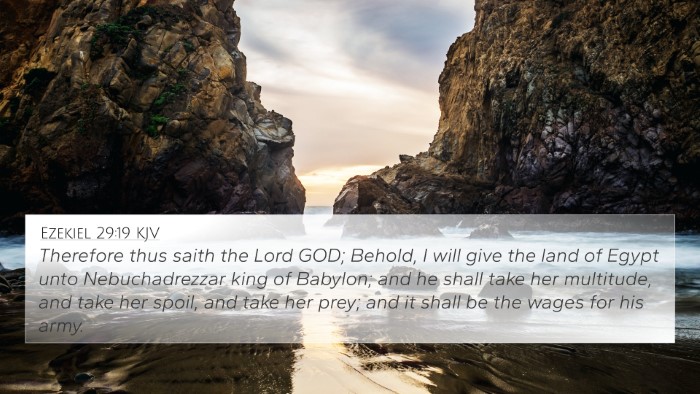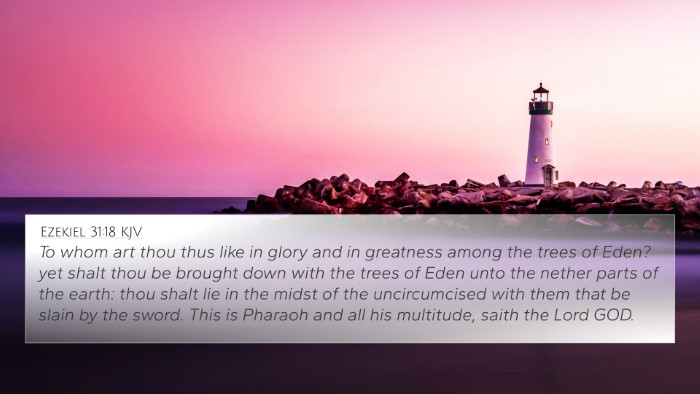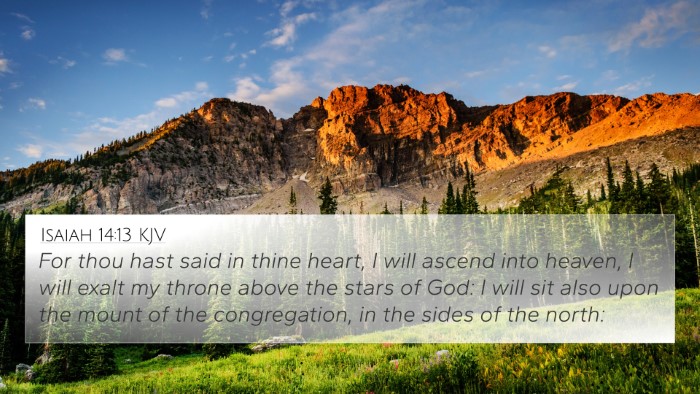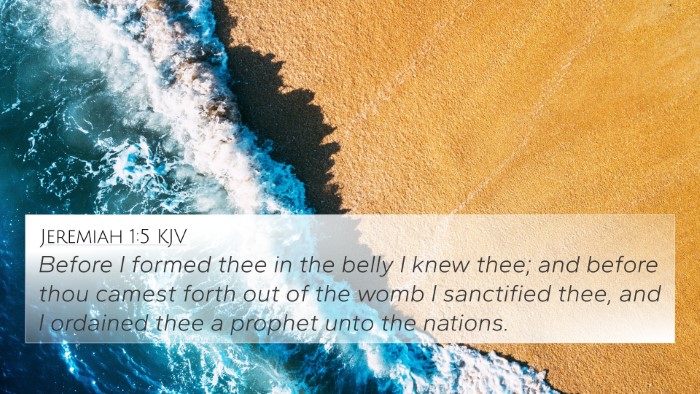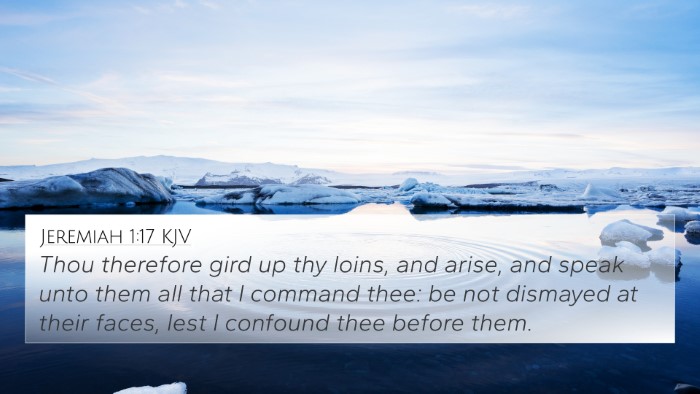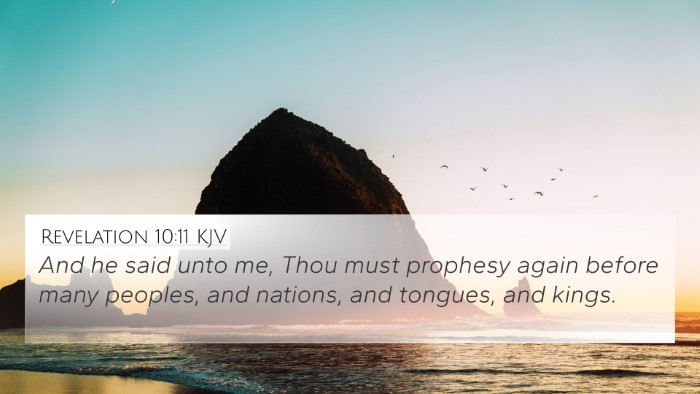Ezekiel 31:2 - Meaning and Interpretation
Ezekiel 31:2 states: "Son of man, say unto Pharaoh king of Egypt, and to his multitude; Whom art thou like in thy greatness?" This verse serves as a prophetic message delivered to Pharaoh, drawing attention to Egypt's pride and comparing it to other great nations.
This scripture can be analyzed through various commentaries, including insights from Matthew Henry, Albert Barnes, and Adam Clarke.
Summary of Commentary Insights
Matthew Henry’s Commentary emphasizes the futility of Egypt's pride. He notes that the verse initiates a comparison between Pharaoh and other great entities, ultimately highlighting that Egypt, despite its might, will face judgment like others have.
Albert Barnes provides context by discussing the significance of Pharaoh's power in relation to the surrounding nations. He asserts that Egypt's greatness is a facade and warns of the impending pride that leads to downfall.
Adam Clarke focuses on the rhetorical question posed in the verse. He suggests that the question implies that Pharaoh's greatness is unmatched by no one, setting the stage for the subsequent message emphasizing inevitable downfall.
Cross-References Related to Ezekiel 31:2
- Isaiah 19:1: Refers to the judgment against Egypt and its idols.
- Ezekiel 30:18: Mentions the swift destruction of the multitudes in Egypt.
- Jeremiah 46:25: Predicts judgment on Egypt as it faces ruin.
- Ezekiel 32:2: Continues the theme of Pharaoh’s pride and the resulting humiliation.
- Habakkuk 2:4: Discusses the pride of nations and their eventual destruction.
- Daniel 4:30: King Nebuchadnezzar's pride mirrors that of Pharaoh, leading to his humbling.
- Proverbs 16:18: Talks about pride going before destruction.
- Matthew 23:12: Jesus' teaching on humility versus exaltation.
- Revelation 18:2: The fall of Babylon, symbolizing judgment against great powers.
- Lamentations 2:15-16: The mockery of fallen leaders as a theme of judgment.
Thematic Connections in Ezekiel 31:2
This verse initiates a wider thematic dialogue about pride, downfall, and divine judgment. Throughout the Bible, we notice a consistent message regarding the consequences of arrogance and self-reliance. Tools for Bible cross-referencing can further elucidate how themes are shared across texts.
Exploring Connections Through Cross-Referencing
When utilizing a Bible concordance or cross-reference Bible study guide, believers can find profound connections among scripture. For example, the proud nations and rulers often stand in stark contrast to God’s sovereignty and justice. To understand how these Biblical verses relate to each other, consider:
- Identifying connections between Old and New Testament messages.
- Exploring how prominent themes are echoed in various contexts.
- Applying a Bible cross-reference system for deeper study.
How to Use Cross-References Effectively
Understanding how to find cross-references in the Bible enhances the study experience, offering clarity and enriching personal growth. Here’s how one could approach cross-referencing:
- Start with the Bible verse in question, such as Ezekiel 31:2.
- Look for keywords that resonate throughout scripture.
- Employ Bible reference resources to find doctrinal parallels.
- Engage in cross-referencing Bible study methods to analyze links between different passages.
Conclusion
Ezekiel 31:2 serves as a reminder of the transient nature of earthly power and pride. Through the lenses provided by various commentaries and cross-references, readers can grasp the depth of God’s ultimate authority and the messages of humility throughout scripture.
For further study, one might consider Bible cross-references for sermon preparation or engage in inter-Biblical dialogue to elaborate on these themes. The connections between various scriptures shed light on overarching Biblical narratives, enriching understanding among believers.
